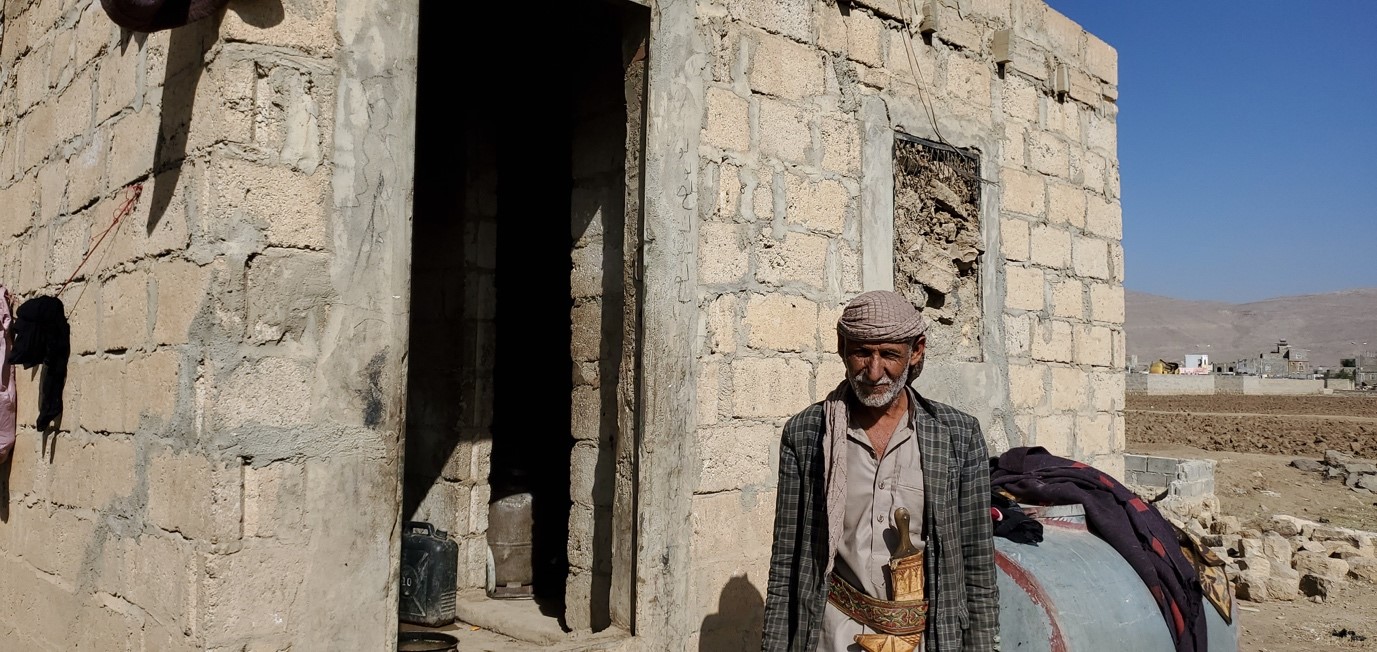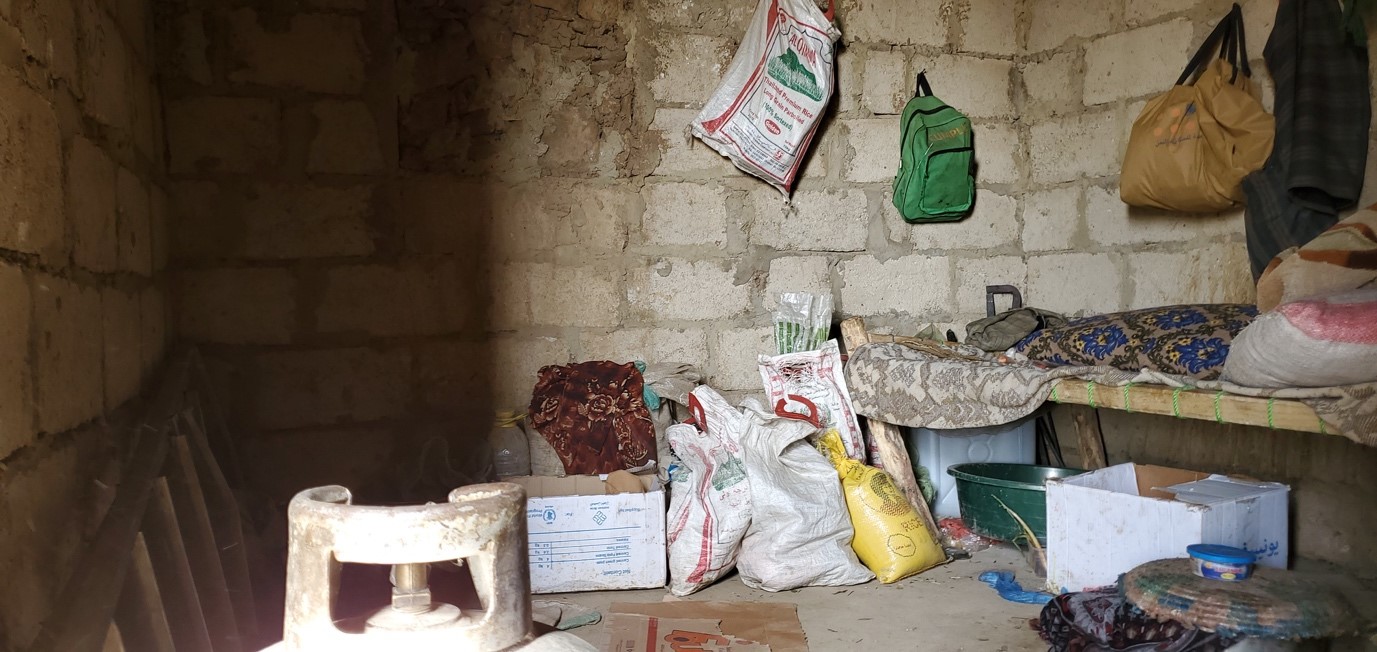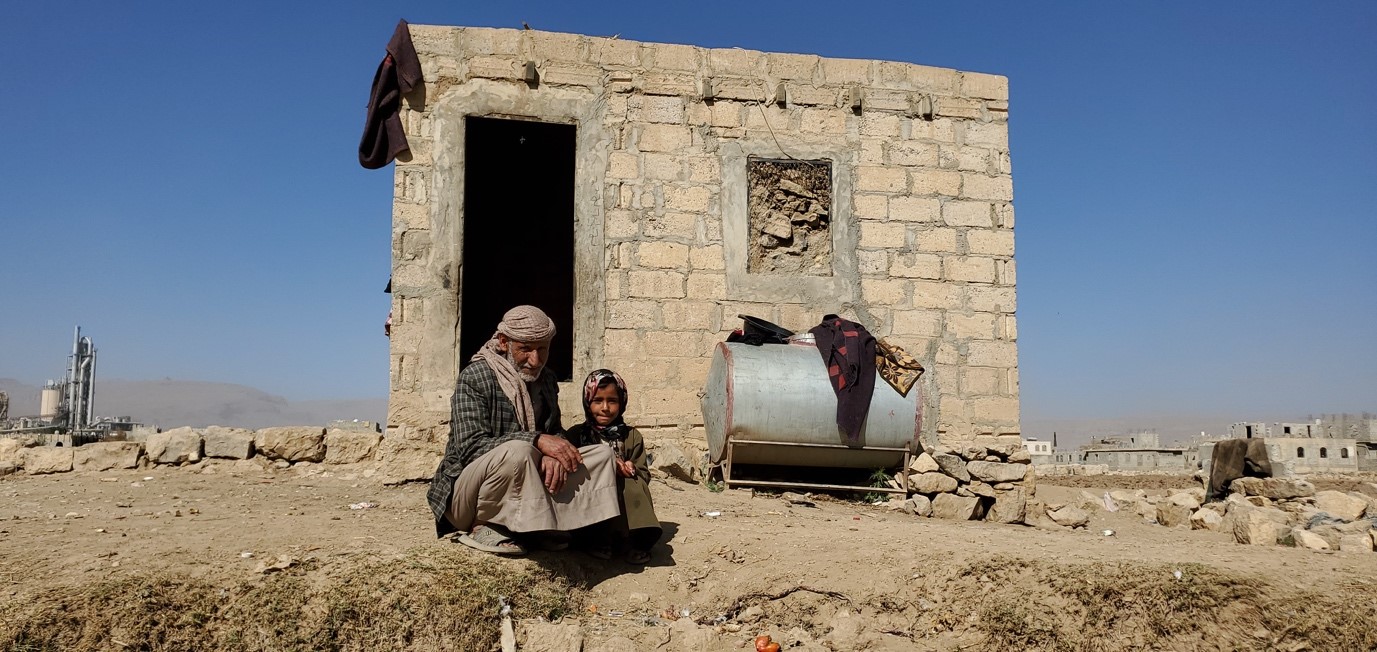The Yemen conflict has been ongoing for almost five years. A total of 4 million people have been internally displaced, of whom at least 75% are women and children who face protection risks.
Ahmed Abdo is a 50-year-old internally displaced person (IDP) from Al Rujum district of Al-Mahwit governorate in the west of Yemen. He currently lives in a one-room building with his 8-year-old-daughter and his wife.
Before the war, Ahmed used to work as a builder earning a daily wage. “Building houses and farming were my main sources of income,” he says. “The money I used to earn allowed me a decent living and enabled me to support my family. I could buy daily basics and didn’t have to pay any rent since I lived in my own home. Buying medication is a big deal for me because I suffer from hernia sickness due to the difficulty of my work.”


